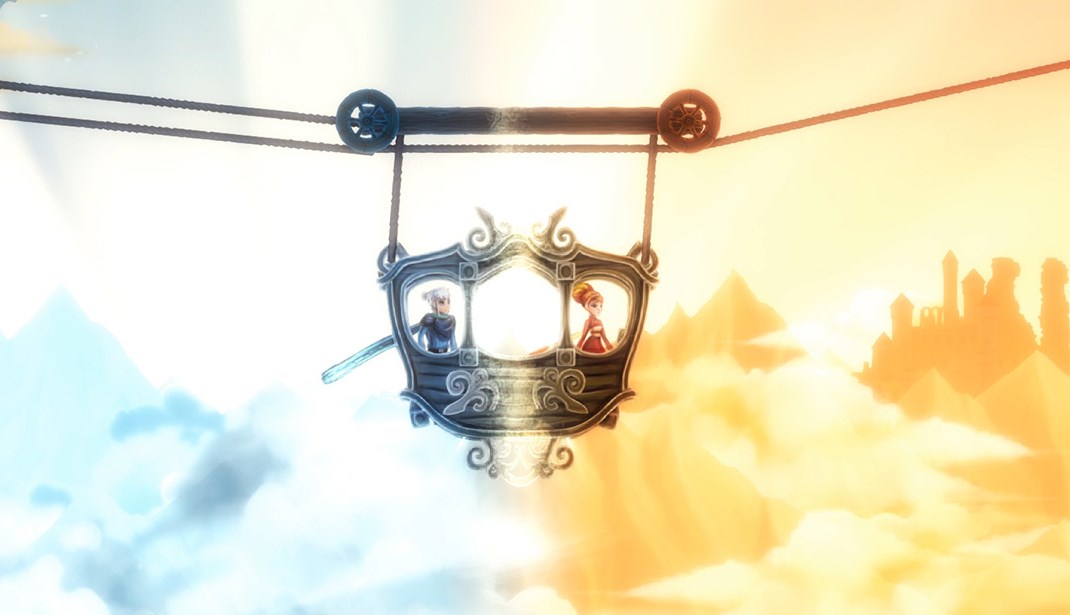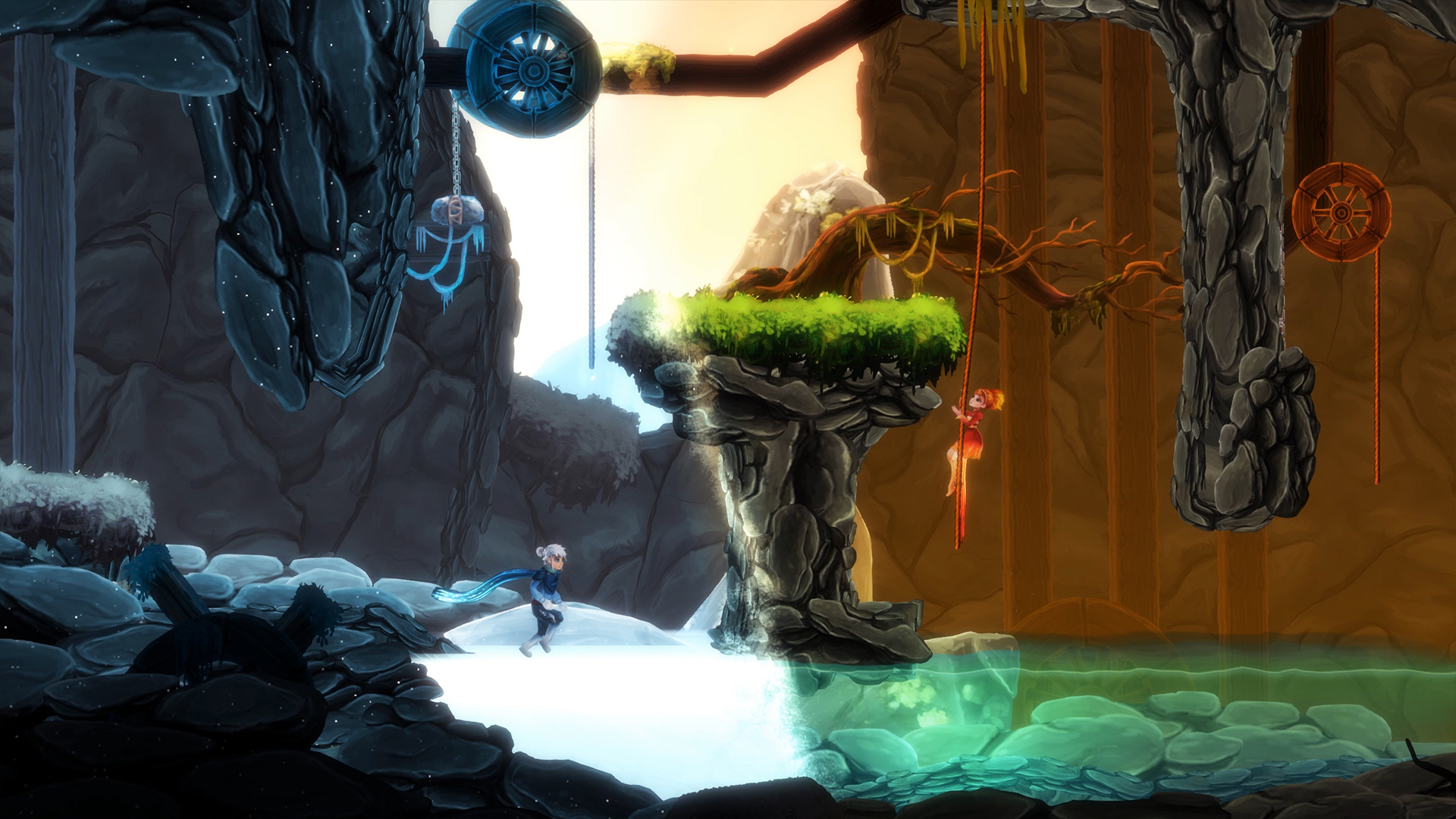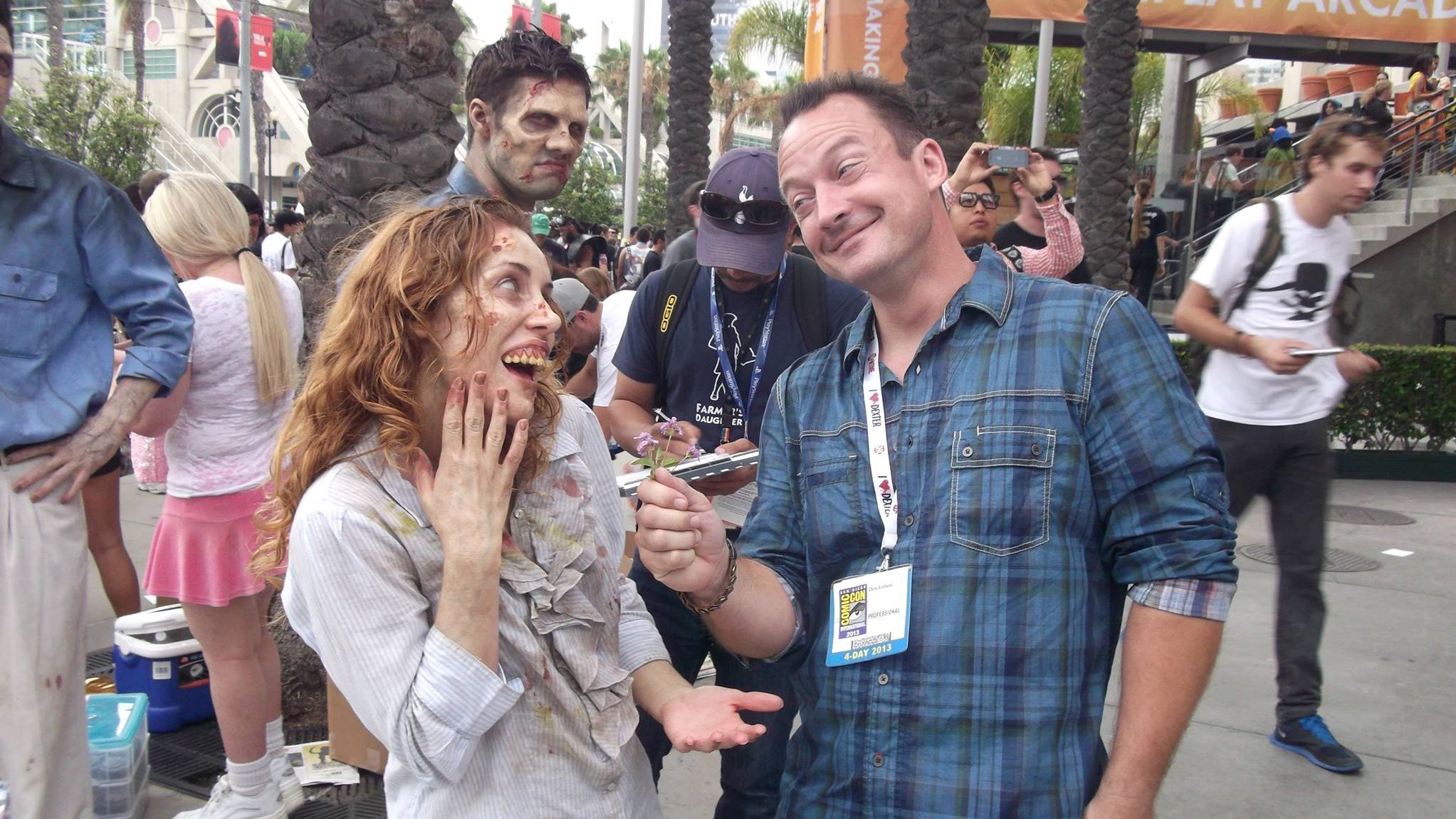Chris Avellone tells us why he decided to write a platformer, and how it compares to RPGs
Avellone comes one step closer to winning genre writing bingo with puzzle platformer Degrees of Separation.

Chris Avellone is not a name I associate with platformers. As a writer and designer at Obsidian, Avellone imbued Star Wars: Knights of the Old Republic 2 with a nuanced version of the Force we'd never seen before. Before that, he wrote one of the most beloved PC RPGs of all time in Planescape: Torment. But these days, three years after leaving Obsidian to go freelance, it's not all RPGs, all the time: Avellone's next writing project is puzzle platformer Degrees of Separation.
He clued us in on how writing a platformer is different from his recent work on Into the Breach and Divinity: Original Sin 2, why he decided to tackle a romantic story, what genres he’d still like to get under his belt, and the absolutely official no-takebacks shipping name for Degrees of Separation’s protagonists Rime and Ember.
And now for something completely different...
Degrees of Separation is about two young opposites whose attraction is the key to melting and freezing the world around them. RPGs and platformers may not be as diametrically opposed as fire and ice, but the jump from open worlds full of chatty townsfolk and winding quests to a platformer with two protagonists and a narrator is a big one.
I asked Avellone how he's chosen projects to work on since leaving Obsidian Entertainment. Surely he’s living in the shadow of his own work? He stressed that the best enticements are the prospect of working on a genre he’s never tried, exploring a new theme, or collaborating with a developer he’s a fan of. Divinity: Original Sin 2 and Into the Breach both benefited from that desire to push his boundaries. Degrees of Separation, likewise, was new on more axes than genre alone.
For the future, I’d love to work on titles that have/expand upon relationship and adversary systems like Middle-earth: Shadow of Mordor.
Chris Avellone
“I thought I could learn a lot working on it as well as stretch my writing in ways I hadn’t had the chance to do before. I hadn’t done a platformer before (nor a platformer quite like this), and while normally I would shy away from doing romance games because I don’t feel I do a good job with romances, the relationship Moondrop had introduced with the two characters, Ember and Rime, was different than I was expecting,” he said.
Avellone may not take on writing the next big dating sim game, but Degrees of Separation’s approach to the relationship between Rime and Ember was enough to catch his interest. “For example, at one stage, Rime and Ember are in the initial stages of their relationship, and they can use their powers to create bridges for each other (echoing support). At another stage, the two begin to become angry and argumentative, and their powers become explosive as a result (echoing conflict). There are several stages like this, and it was those hooks—the range in the relationship, and the union of the emotion and the gameplay mechanics—that drew me in.”
I asked Avellone to bestow a relationship name upon his two newest protagonists. He says there wasn’t an official name given to the pair by Moondrop, but I choose to take his suggestion as gospel. “We didn’t have one I was aware of, but I think ‘Rimember’ might be a contender.” Instant classic.
The biggest gaming news, reviews and hardware deals
Keep up to date with the most important stories and the best deals, as picked by the PC Gamer team.

Form, form never changes
How distinct is writing a platformer from writing an RPG? I can name a handful of story-heavy puzzle platformers, Ori and the Blind Forest being my own favorite. The vast majority, though, motivate players with gradually increasing tests of skill rather than the dramatic plots RPGs use to pull a player from beginning to end.
Avellone says that after working on Degrees of Separation he found it’s often less about leaving breadcrumbs for players on the big-picture scale that RPGs do, and much more about a player’s moment-to moment position. Narration has to serve as a vehicle for the story but also a friendly nudge in the direction of a rope to pull that the player may have missed.
“It requires some changes in approach, but the scripting tools the game had made it easy to target certain lines to play at just the right moment of solving a puzzle, challenge, or revelation of a vista. The challenge was to make sure you’re pacing the reading of the lines to the amount of space the characters are traversing, you’re giving hints and nods to elements in the environment to showcase challenges and puzzles or call attention to something a player may miss.”
Some things, though, don’t seem to change. Not in this case, at least. Although Avellone highlights Degrees of Separation’s open middle section as distinct from other platformers, it sounds awfully like the concessions that writers make in crafting quests and dialogues for open world RPGs like Original Sin 2 or New Vegas.
“One thing that sets Degrees apart is that the middle of the game is open, it’s not a linear story—the characters can move in and out of various worlds. So you have to be aware of that when writing, as you can only count on a certain amount of pre-knowledge in the character’s journey and relationship in some of the sequences.”

With a platformer now under his belt and new lessons learned, I asked Avellone what he most wants to tackle next.
“For the future, I’d love to work on titles that have/expand upon relationship and adversary systems like Middle-earth: Shadow of Mordor in interesting ways, and I also wouldn’t mind doing more work in VR, and the RTS and strategy space as well. I’m currently working in a number of genres I’ve been eager to try (Into the Breach was a new experience for me, for example) so there’s likely more to be revealed in the future when these titles are announced.”
If you're eager for the next game with the Avellone touch, it may well be Dying Light 2. That one will check "zombie parkour" off the genre bucket list.

Lauren has been writing for PC Gamer since she went hunting for the cryptid Dark Souls fashion police in 2017. She accepted her role as Associate Editor in 2021, now serving as self-appointed chief cozy games and farmlife sim enjoyer. Her career originally began in game development and she remains fascinated by how games tick in the modding and speedrunning scenes. She likes long fantasy books, longer RPGs, can't stop playing co-op survival crafting games, and has spent a number of hours she refuses to count building houses in The Sims games for over 20 years.

